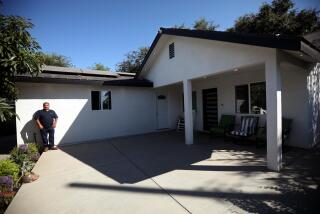A Tragedy of Two Cities
Los Angeles is home to multimillionaire movie execs and billionaire developers. When it comes to the overall value of its goods and services, L.A. County does better than Switzerland, Sweden or Austria. It is also the poverty capital of the nation.
To measure the widening gap between the region’s haves and have-nots, the United Way of Greater Los Angeles crunched numbers from dozens of government and private studies. Its recently released report, “A Tale of Two Cities: Promise and Peril in Los Angeles County,” found that the rich are not getting richer so much as the poor are getting poorer.
Everyone is familiar with studies showing that wages increase with education, but lack of formal learning is not the sole reason for the gap. The United Way study found that wages for those with the lowest level of education are actually declining.
Some industries never recovered from the recession of the early 1990s. Many high-paying aerospace jobs disappeared for good. Seven of the 10 fastest-growing occupations -- retail sales clerk, security guard and cashier among them -- pay less than $25,000 a year.
An estimated 811,000 residents work off the books as day laborers or nannies, earning substandard wages and no benefits. Almost 2 million people -- more than in any other metropolitan area -- eke out an existence on less than $18,100 a year, the federally defined poverty level for a family of four. The burden is even greater in this area, topped only by New York City and San Francisco in cost of living.
In a time when lack of education increasingly means a life of poverty, 30% of county residents over 25 have never finished high school. Among the 36% who are foreign-born in L.A. County, many are immigrants from Latin American countries with low levels of education.
The worst-case scenario is that Los Angeles becomes a city divided between ghettos and gated communities. But the United Way study also paints a city of promise, where immigrants contribute youth and vitality to the workforce and forge a multiethnic, multilingual version of Los Angeles that has strong links to an ever more global economy. The way to get from peril to promise is for all of Los Angeles to recognize the benefits of narrowing the rift between very rich and very poor.
United Way supports literacy classes, quality child care, affordable housing and other ladders to the middle class. And a strong middle class makes the best bridge between what would otherwise be two cities doomed to isolation and fear of “the other.”
*
To take action: For more information on the Bridging the Gap in Our Community campaign, contact the United Way of Greater Los Angeles at (213) 630-2371 or www.united wayla.org.
More to Read
Sign up for Essential California
The most important California stories and recommendations in your inbox every morning.
You may occasionally receive promotional content from the Los Angeles Times.










